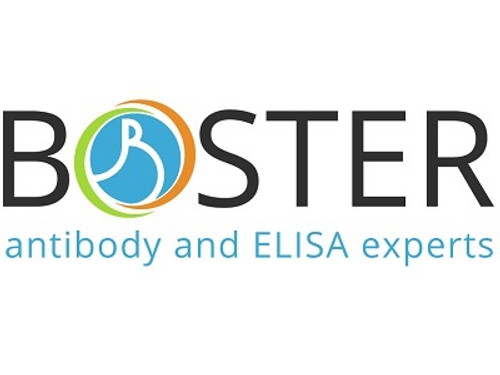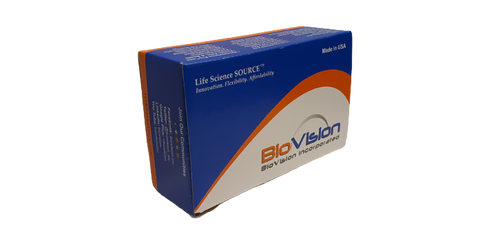Product Description
Human Enteropeptidase (PRSS7) ELISA Kit | KTE61102 | Abbkine
Application: This Human Enteropeptidase (PRSS7) ELISA Kit employs a two-site sandwich ELISA to quantitate PRSS7 in samples. An antibody specific for PRSS7 has been pre-coated onto a microplate. Standards and samples are pipetted into the wells and anyPRSS7 present is bound by the immobilized antibody. After removing any unbound substances, a biotin-conjugated antibody specific for PRSS7 is added to the wells. After washing, Streptavidin conjugated Horseradish Peroxidase (HRP) is added to the wells. Following a wash to remove any unbound avidin-enzyme reagent, a substrate solution is added to the wells and color develops in proportion to the amount of PRSS7 bound in the initial step. The color development is stopped and the intensity of the color is measured.
Detection Method: Colorimetric
Conjugate: N/A
Sample Type: Cell culture supernatants#Serum#Plasma#Other biological fluids
Assay Type: Multiple steps standard sandwich ELISA assay with a working time of 3-5 hours. It depends on the experience of the operation person.
Kit Component: • Human Enteropeptidase microplate
• Human Enteropeptidase standard
• Human Enteropeptidase detect antibody
• Streptavidin-HRP
• Standard diluent
• Assay buffer
• HRP substrate
• Stop solution
• Wash buffer
• Plate covers
Features & Benefits: Human Enteropeptidase (PRSS7) ELISA Kit has high sensitivity and excellent specificity for detection of Human PRSS7. No significant cross-reactivity or interference between Human PRSS7 and analogues was observed.
Calibration Range: Please inquire
Limit Of Detection: Please inquire
Usage Note: • Do not mix components from different kit lots or use reagents beyond the kit expiration date.
• Allow all reagents to warm to room temperature for at least 30 minutes before opening.
• Pre-rinse the pipet tip with reagent, use fresh pipet tips for each sample, standard and reagent to avoid contamination.
• Unused wells must be kept desiccated at 4 °C in the sealed bag provided.
• Mix Thoroughly is very important for the result. It is recommended using low frequency oscillator or slight hand shaking every 10 minutes.
• It is recommended that all samples and standards be assayed in duplicate or triplicate.
Storage Instruction: The unopened kit should be stored at 2 - 8°C. After opening, please store refer to protocols.
Shipping: Gel pack with blue ice.
Precaution The product listed herein is for research use only and is not intended for use in human or clinical diagnosis. Suggested applications of our products are not recommendations to use our products in violation of any patent or as a license. We cannot be responsible for patent infringements or other violations that may occur with the use of this product.
Background: Enteropeptidase is an enzyme involved in human digestion. It is produced by cells in the duodenum wall, and is secreted from duodenum's glands, the crypts of Lieberkühn, whenever ingested food enters the duodenum from the stomach. Enteropeptidase has the critical job of turning trypsinogen (a zymogen) to trypsin, indirectly activating a number of pancreatic digestive enzymes. Enteropeptidase is a serine protease enzyme (EC 3.4.21.9) which converts inactive trypsinogen into active trypsin by cleavage at the C-terminal end of the sequence. It consists of a disulfide-linked 82–140 kDa heavy chain which anchors enterokinase in the intestinal brush border membrane and a 35–62 kDa light chain which is the catalytic subunit.
Alternative Names: PRSS7; ENTK; MGC133046; enterokinase; enteropeptidase
Search name: PRSS7; ENTK; MGC133046; enterokinase; enteropeptidase
Tag: PRSS7
 Euro
Euro
 USD
USD
 British Pound
British Pound
 NULL
NULL












